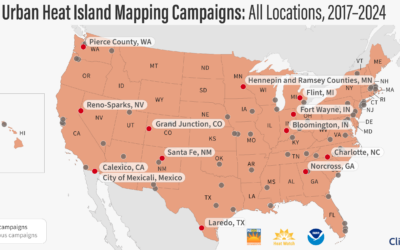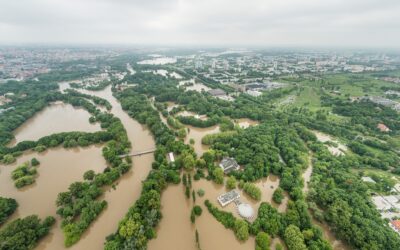Reno, Nev. (April 4, 2022) – DRI scientist Benjamin Hatchett, Ph.D., has been honored with the 2022 Rising Researcher Award from the Nevada System of Higher Education (NSHE) Board of Regents, in recognition of his early-career accomplishments and potential for future advancement in Earth and environmental sciences.
Hatchett is an Assistant Research Professor in DRI’s Division of Atmospheric Sciences and specializes in hydrometeorology and hydroclimatology of dryland and alpine regions spanning the past, present, and future.
“I am honored to receive this award from the NSHE Board of Regents,” Hatchett said. “I look forward to continuing to shift my efforts towards scientific activities with tangible, actionable outcomes and appreciate this recognition of my accomplishments.”
During the past decade, Hatchett has worked on Great Basin paleoclimate and paleohydrologic reconstructions spanning the past 21,000 years; atmospheric modeling of downslope winds (such as Santa Anas) primarily in California but also globally; the observation, analysis, and prediction of western U.S. natural hazards including floods, heat waves, wildfire, drought, air pollution, landslides, and avalanches; strategies to improve communication of weather forecasts in the U.S.; impacts of environmental extremes on human mobility; and projections of 21st-century climate from urban to continental scales with a specific focus on mountain environments along the Pacific Cordillera.
Dr. Hatchett has published 38 articles in a wide variety of peer-reviewed journals and 24 additional peer-reviewed book chapters, non-reviewed articles, and technical reports. He has worked with numerous research teams, partners, and stakeholders to complete projects funded by agencies such as the National Oceanic and Atmospheric Administration (NOAA), the National Aeronautics and Space Administration, and the National Science Foundation. He is most proud of his projects that support decision-making and promote climate resilience.
“Dr. Hatchett has excelled not only in publishing his research in peer-reviewed journals, but also in making science accessible to decision-makers and the public via media interviews, public presentations, and STEM outreach,” said DRI Vice President for Research Vic Etyemezian, Ph.D.
In addition to his research, Hatchett is an active mentor and educator to students of Earth and environmental sciences. He co-teaches a course in air pollution at UNR and is an adjunct faculty member at the Lake Tahoe Community College. He has advised several undergraduate students, served on committees for graduate students in both the Atmospheric Sciences and Hydrologic Sciences programs, and is currently advising one Ph.D. student.
Hatchett holds a B.S. in geography with a minor in hydrogeology, an M.S. in atmospheric sciences, and a Ph.D. in geography, all from the University of Nevada, Reno. He joined DRI as a postdoctoral fellow in 2016 under the mentorship of Professors Michael Kaplan and Craig Smith and became an Assistant Research Professor in 2018.
###
About DRI
The Desert Research Institute (DRI) is a recognized world leader in basic and applied environmental research. Committed to scientific excellence and integrity, DRI faculty, students who work alongside them, and staff have developed scientific knowledge and innovative technologies in research projects around the globe. Since 1959, DRI’s research has advanced scientific knowledge on topics ranging from humans’ impact on the environment to the environment’s impact on humans. DRI’s impactful science and inspiring solutions support Nevada’s diverse economy, provide science-based educational opportunities, and inform policymakers, business leaders, and community members. With campuses in Las Vegas and Reno, DRI serves as the non-profit research arm of the Nevada System of Higher Education. For more information, please visit www.dri.edu.


